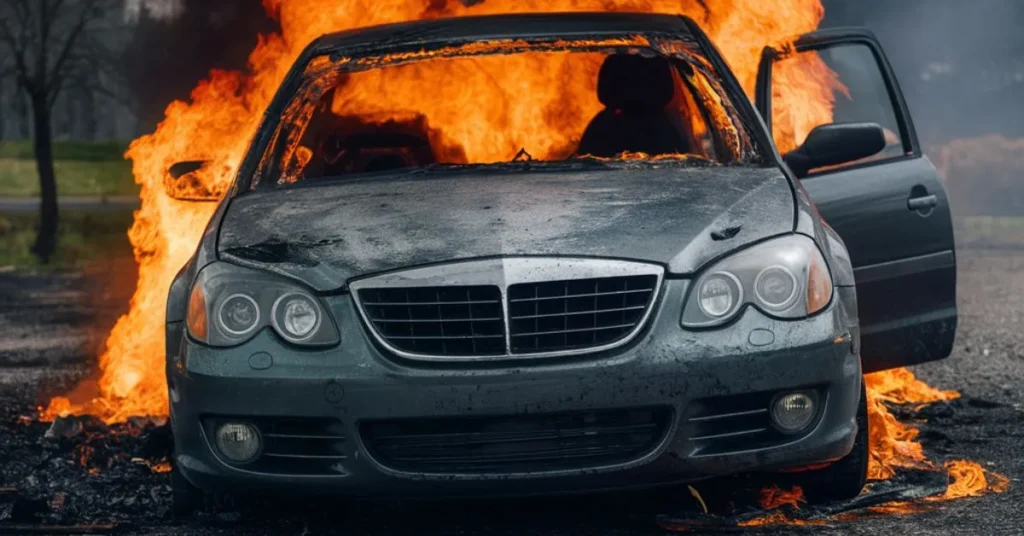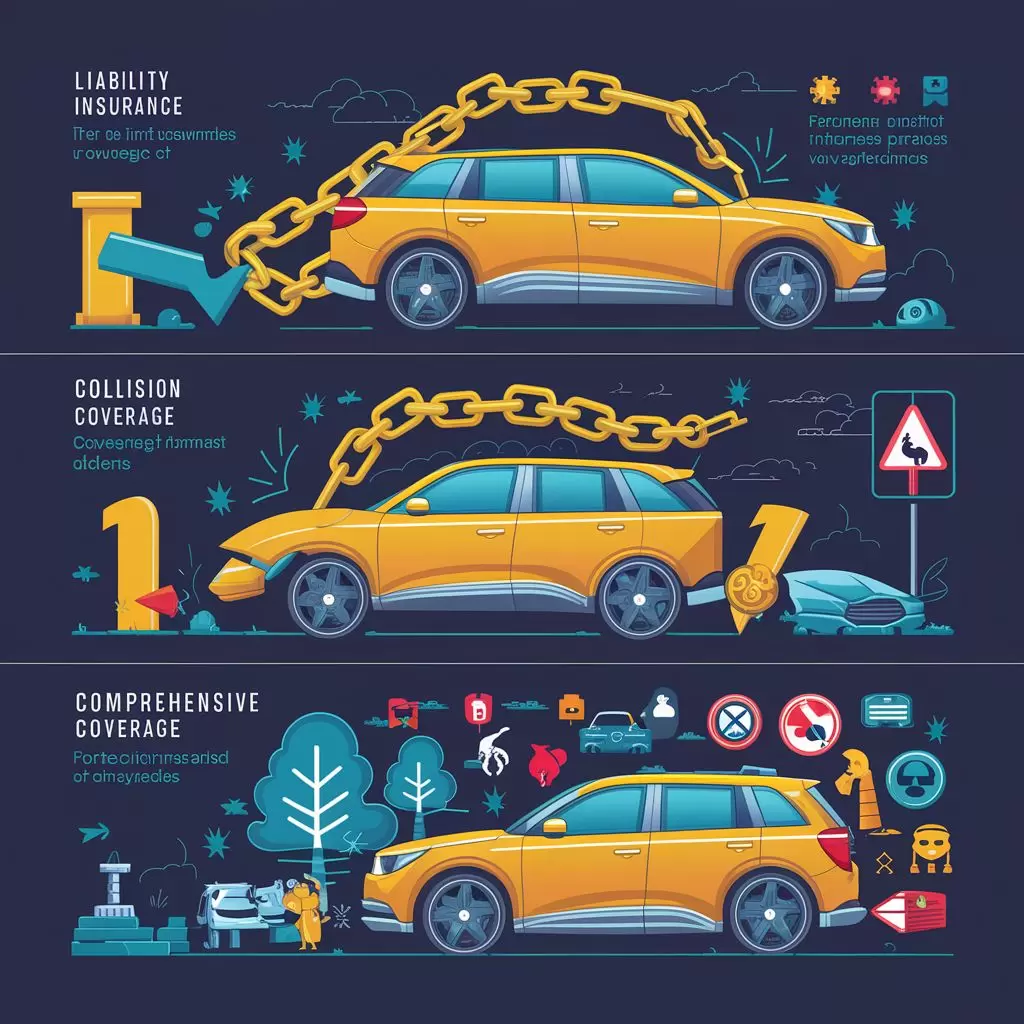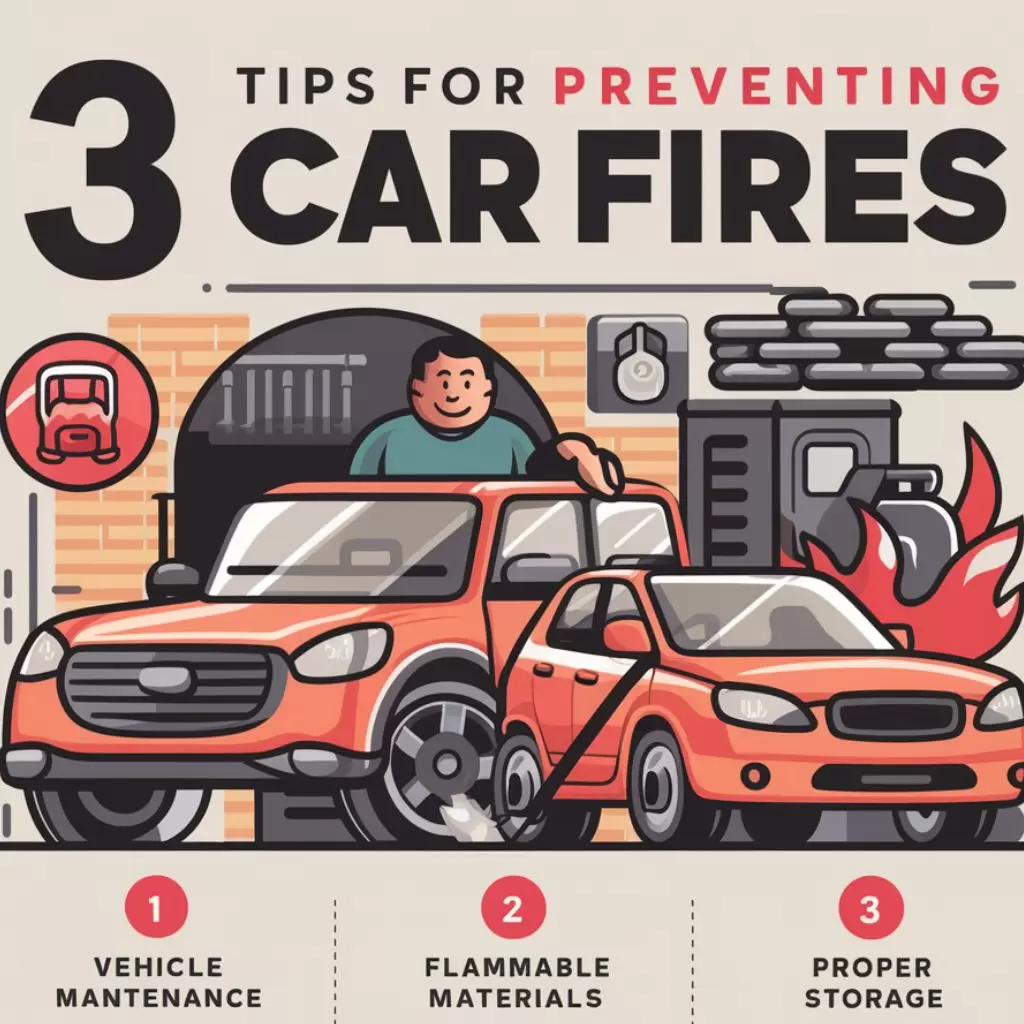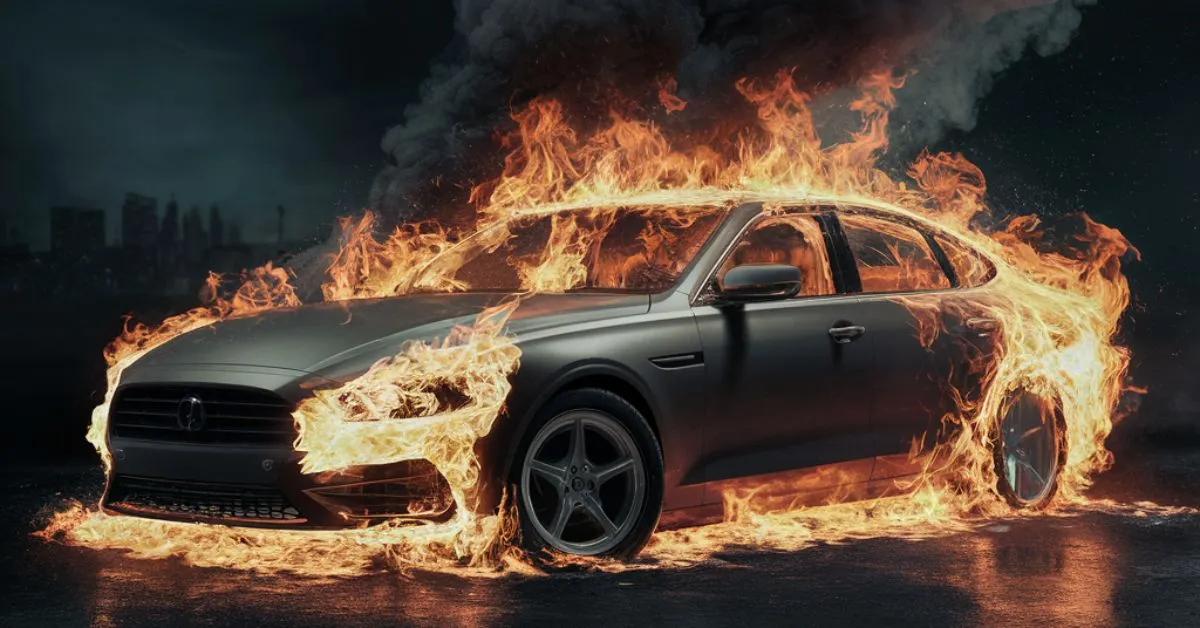Fire damage to cars can cause severe destruction, impacting both the exterior and interior. Modern car fires are often due to electrical issues or engine malfunctions.
Car insurance often covers fire damage under comprehensive coverage. This type of insurance protects against non-collision events, including fires. It’s important to check your policy for specific coverage details.
If your car is damaged by fire, file a claim with your insurer. Make sure to document the damage with photos and reports for a smooth claims process.
What Coverage Pays for Burned Vehicles?
Vehicle fires can be devastating, leading to extensive damage or even a total loss. If your car catches fire, whether due to an internal mechanical issue, external circumstance, or unfortunate accident, your insurance coverage can be a lifesaver. However, not all policies cover fire damage equally, and the specifics of your coverage will determine how much financial protection you have.

Typically, comprehensive coverage is the key to getting your vehicle repaired or replaced after a fire. This optional add-on to your auto insurance policy safeguards your car against non-collision incidents, including fires, theft, vandalism, and weather-related events like hail or falling objects.
Car Fire Scenarios
Some common situations where comprehensive coverage would apply for fire damage include:
- Engine fires: Whether caused by a leak, overheating, electrical issues, or other mechanical failures, fires originating from within the engine compartment are generally covered.
- Interior fires: Fires starting inside the cabin, such as from electrical shorts or cigarette mishaps, fall under comprehensive coverage.
- Exterior fires: If your parked car is damaged by an external fire source like a wildfire, garage fire, or another vehicle fire nearby, comprehensive insurance should cover repairs.
It’s important to note that while comprehensive coverage protects against fire damage, it does not cover vehicle fires caused by collisions or rollovers. For those incidents, you would need collision coverage, a separate component of your auto insurance policy.
Causes of Car Fires
Understanding some of the most common causes of vehicle fires can help you take preventative measures. Here are a few frequent culprits:
Fuel Leak
Leaking fuel lines or a cracked fuel tank can allow gasoline or diesel to drip onto hot engine components, quickly igniting a fire. Proper maintenance and prompt repairs of any fuel system issues are crucial.
Overheating
An overheated engine resulting from coolant leaks or other cooling system problems increases the risk of engine component failures and fires.
Faulty Electronics
Electrical system issues like shorts or bad wiring can spark fires, especially in older vehicles with aging electronics and wiring harnesses.
House Fire
If your home or garage catches fire, any vehicles parked inside or nearby could also be damaged or destroyed by the spreading flames.
Arson
While less common, intentionally set fires classified as arson would likely not be covered by your insurance due to the illegal nature.
3 Types Of Car Insurance Coverage

To fully understand what car insurance covers regarding fire damage, it’s helpful to review the three main types of coverage:
1. Liability Coverage: This legally-required minimum coverage pays for injuries/damages you cause others in an at-fault accident, but it does not cover damage to your own vehicle from any cause, including fires.
2. Collision Coverage: While collision insurance covers repairs if your vehicle is damaged in an impact with another vehicle or object, it does not cover non-collision-related fire damage. You would need both collision and comprehensive for maximum protection.
3. Comprehensive Coverage: As mentioned, comprehensive coverage is what protects your vehicle against fire damage as well as other non-collision incidents like theft, vandalism, falling objects, etc. It requires paying an additional premium beyond liability-only coverage.
Most finance companies require carrying both collision and comprehensive coverage until your vehicle loan is fully paid off. However, purchasing comprehensive coverage is generally an optional choice for owners of paid-off vehicles.
Related Article: Does Your Car Insurance Cover Restitution Costs? Find Out Now!
Preventative Measures and Safety Tips
While fire damage may be covered under your comprehensive auto policy, taking preventative steps is advisable to reduce fire risks:
- Adhere to scheduled maintenance to avoid mechanical issues that could spark fires.
- Never park a vehicle over piles of leaves, dry grass, or other flammable materials.
- Properly discard any smoking materials rather than leaving them inside the vehicle.
- Check for any warning lights indicating potential electrical issues and have them inspected promptly.
- Keep a fire extinguisher in your vehicle in case a small fire starts.
Steps to Take if Your Car Catches on Fire
If your vehicle does catch fire while driving or after parking, remaining calm and following proper safety protocols is crucial:
Immediate actions to ensure safety:
- Pull over and move as far away from the vehicle as possible, at least 100 feet.
- Warn any nearby pedestrians and get yourself and passengers to a safe area away from the vehicle.
- Call emergency services immediately and wait for firefighters to extinguish the blaze. Do not attempt to put out the fire yourself unless it is very small and you have a proper extinguisher.
Contacting emergency services and insurance providers:
- Once in a safe location, contact your insurance provider and file a claim. The sooner you report the incident, the faster the process can begin.
- If the fire department responds, request a copy of their incident report to provide documentation to your insurer.
Documenting the incident for insurance purposes:
Your insurance company will send an adjuster to assess the damage. To support your claim:
- Take photos/video of the burned vehicle from multiple angles.
- Document any belongings lost in the fire.
- Keep records of any related medical treatment required due to injuries or smoke inhalation.
3 Tips for Preventing Car Fires

While you can’t control every possible fire hazard, following some basic precautions can help reduce risks:
1. Vehicle Maintenance
Keeping up with your car’s routine maintenance schedule is one of the best ways to prevent mechanical fires. Pay close attention to:
- Replacing worn hoses, belts, and batteries.
- Fixing any coolant, oil, or fuel leaks immediately.
- Having the electrical system and wiring inspected regularly.
2. Flammable Materials
Never transport or store flammable materials like gasoline cans, propane tanks, oily rags, etc. inside your vehicle’s cabin or trunk area. The heat could potentially ignite these items.
3. Proper Storage
If you frequently haul items that could be fire hazards, invest in a truck bed toolbox or external cargo carrier to keep them isolated from the passenger compartment.
How to File a Claim for Fire Damage
If your vehicle does sustain fire damage, promptly reporting the incident and filing a claim with your insurance provider is crucial:
- Notify your insurer immediately by calling their claims hotline or initiating a claim online.
- Provide full details about the date, location, cause of the fire, and extent of damage.
- Submit documentation like photos, repair estimates, fire reports, etc. to support your claim.
- Review your policy to understand your coverage limits and deductible amount.
- Work with the claims adjuster who will inspect the damage and determine the next steps.
Depending on the severity of the damage, your insurer may approve repairs at a preferred shop or deem your vehicle a total loss and provide a settlement.
Related Article: Are Bicycle Accidents Covered by Car Insurance? Find Out Now!
Frequently Asked Questions
What type of car insurance covers fire damage?
Comprehensive coverage is the part of an auto insurance policy that protects against fire damage.
Are all vehicle fires covered by comprehensive insurance?
No, intentionally set fires (arson) are typically not covered under most comprehensive policies.
What documentation should you provide when filing a fire damage claim?
Photos/videos of the damage, fire department reports, repair estimates, and records of any related injuries.
What are some common causes of vehicle fires?
Fuel leaks, overheating engines, electrical issues, external fire sources like wildfires, and arson.
Besides filing an insurance claim, what preventative steps can reduce car fire risks?
Regular maintenance, avoiding transporting flammable materials in the vehicle, and promptly addressing any warning lights or mechanical issues.
Final Thoughts
Protecting your vehicle investment against unforeseen events like fires is a wise choice. While specifics vary by policy, having comprehensive coverage on your auto insurance is typically the best way to safeguard your car against fire damage caused by a variety of sources beyond your control.
By understanding your coverage, taking preventative measures against vehicle fires, and knowing how to properly document and file a claim if needed, you can have peace of mind on the road. Reach out to your insurance provider with any specific questions about your policy’s protections.

I write professional blogs specializing in car insurance. My content delves into various aspects of insurance policies, providing valuable insights and tips for choosing the best coverage. My goal is to make complex insurance topics accessible and engaging for all readers.











